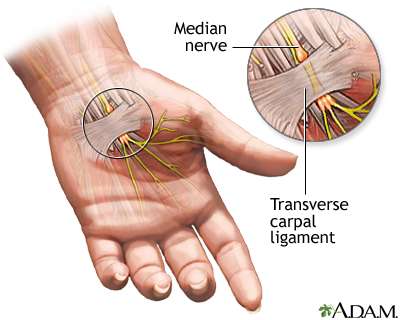Carpal tunnel syndrome – the best treatment at Dr Raos, Guntur
Introduction
Carpal tunnel syndrome is a condition that can cause pain and numbness in the hand and wrist. The condition is caused by compression of the median nerve, which runs through the carpal tunnel, a narrow passageway in the wrist. Carpal tunnel syndrome is a common condition, particularly among women and people who work with their hands. The condition is treatable, and there are steps that can be taken to prevent it from getting worse. Looking for the best neurology hospital in Guntur, look no further than Dr Raos hospital, the best neurosurgery or neurology hospital in Guntur and India.
causes
There are a number of different things that can contribute to the development of carpal tunnel syndrome. In many cases, it is the result of a combination of factors. Some of the most common include: -Repetitive motions of the hands and wrists. This is often seen in people who perform the same motions over and over again at work, such as typing or using a cash register. -An injury or trauma to the wrist. This can include a fracture, dislocation, or sprain. -Arthritis. This condition can cause inflammation in the joints, which can put pressure on the median nerve. -Pregnancy. This is thought to be due to the increased levels of hormones in the body, which can lead to fluid retention and swelling. This can put pressure on the median nerve. -Diabetes. This condition can cause damage to the nerves, which can lead to carpal tunnel syndrome.
symptoms
Carpal tunnel syndrome symptoms can vary in severity. Some people experience mild symptoms that come and go, while others have constant, severe pain. The most common symptom is a tingling or numb feeling in the fingers or hand. This is usually worse at night and can make it difficult to sleep. Other symptoms include: • Pain in the wrist, palm, or forearm • A burning sensation or weakness in the hand • Difficulty gripping or holding objects • Clumsiness when using the affected hand If you have any of these symptoms, it’s important to see your doctor so they can diagnose and treat the condition.
Diagnosis
There are several ways to diagnose carpal tunnel syndrome. The most common is the physical examination. Your doctor will check for tenderness, swelling, and weakness in your hands and wrists. He or she may also ask you to do some simple tests, such as holding your hands out in front of you or making a fist. If your doctor suspects you have carpal tunnel syndrome, he or she may refer you to a specialist for further testing. This may include an electromyogram (EMG) or nerve conduction study. These tests measure the electrical activity of your muscles and nerves to help determine if there is pressure on the median nerve. Carpal tunnel syndrome is usually diagnosed based on your symptoms and physical examination. However, these tests may be ordered to rule out other conditions that cause similar symptoms, such as arthritis or a pinched nerve in the neck.
treatment
There are a number of different ways to treat carpal tunnel syndrome. Some people may only need to wear a splint at night, while others may need to have surgery. If you only have mild symptoms, your doctor may recommend that you wear a splint at night. This will help keep your wrist in a straight position and take the pressure off of the median nerve. You may also be asked to do some exercises and stretches to help improve your symptoms. If your symptoms are more severe, you may need to have surgery. The type of surgery you have will depend on how much damage there is to the median nerve. In some cases, the surgeon will just need to release the pressure on the nerve by cutting through the ligament that is pressing on it. In other cases, the surgeon may need to remove part of the bone or tendon that is pressing on the nerve.
Living with it
Carpal tunnel syndrome can be a chronic and painful condition, but there are ways to manage the pain and live with the condition. Here are some tips: -Rest your hands and wrists as much as possible. -Apply ice to the affected area for 20 minutes at a time, several times a day. -Take over-the-counter pain relievers such as ibuprofen or acetaminophen. -Wear a splint at night to keep your wrist in a neutral position. -Do exercises that stretch and strengthen your hand and wrist muscles. If these conservative measures don’t relieve your symptoms, you may need to see a doctor for further treatment. In some cases, surgery may be necessary to relieve the pressure on the median nerve.
Conclusion
Carpal tunnel syndrome can be a debilitating condition that significantly impacts a person’s quality of life. While there is no cure for the condition, there are treatments available that can help to lessen the symptoms and improve function. It is important to seek medical attention if you think you may be suffering from carpal tunnel syndrome in order to receive an accurate diagnosis and appropriate treatment. With proper care, people with carpal tunnel syndrome can continue to lead active and fulfilling lives. Looking for the best neurology hospital in Guntur, look no further than Dr Raos hospital, the best neurosurgery or neurology hospital in Guntur and India.

